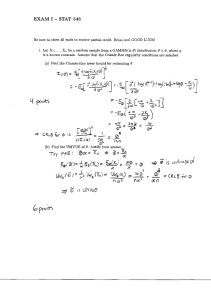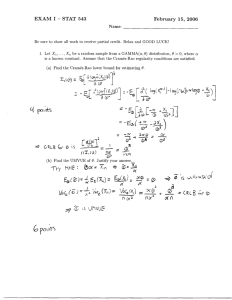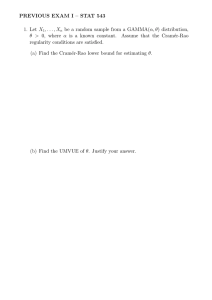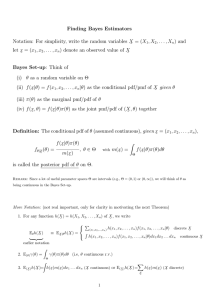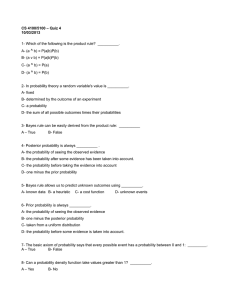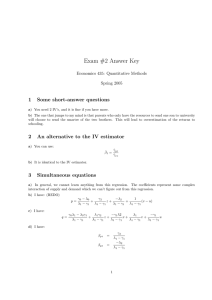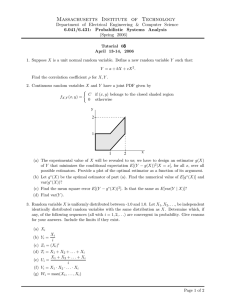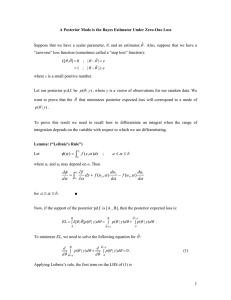θ θ θ θ θ θ θ θ θ θ θ θ θ θ θ θ θ θB, θ θ θ θ θ θ θ θ θ θ θ θ θ
advertisement
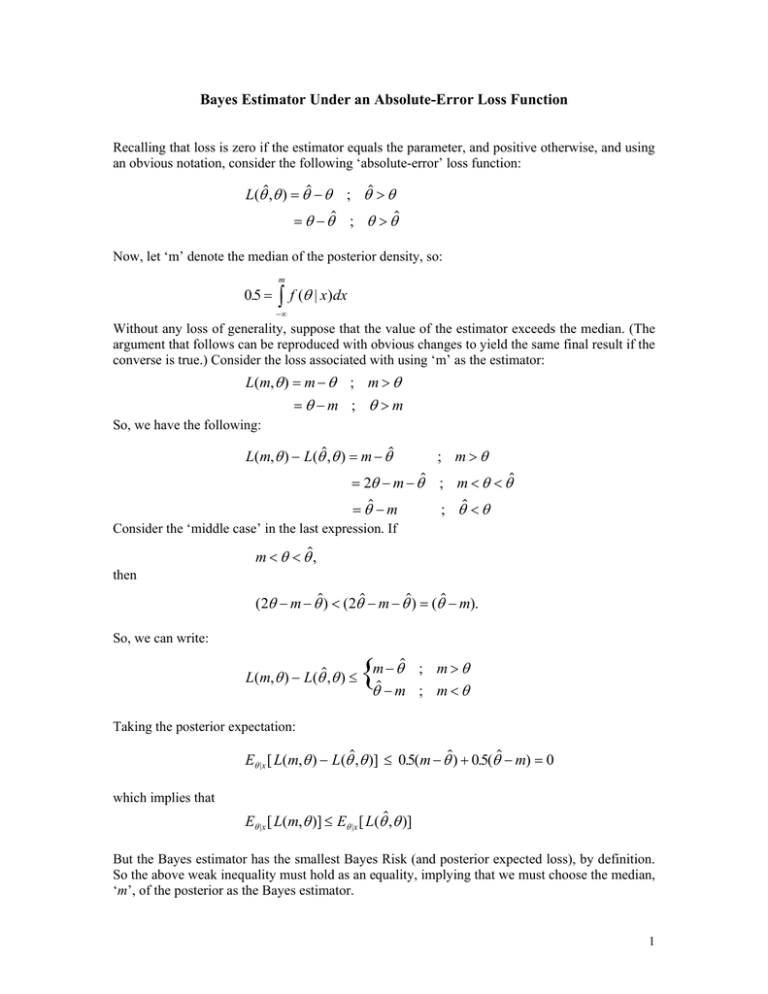
Bayes Estimator Under an Absolute-Error Loss Function
Recalling that loss is zero if the estimator equals the parameter, and positive otherwise, and using
an obvious notation, consider the following ‘absolute-error’ loss function:
L(, ) ;
;
Now, let ‘m’ denote the median of the posterior density, so:
m
0.5
f ( | x)dx
Without any loss of generality, suppose that the value of the estimator exceeds the median. (The
argument that follows can be reproduced with obvious changes to yield the same final result if the
converse is true.) Consider the loss associated with using ‘m’ as the estimator:
L(m, ) m ; m
m ; m
So, we have the following:
L(m, ) L(, ) m
; m
2 m ; m
;
m
Consider the ‘middle case’ in the last expression. If
m ,
then
(2 m ) (2 m ) ( m).
So, we can write:
L(m, ) L(, )
{m m
; m
; m
Taking the posterior expectation:
E |x [ L(m, ) L(, )] 0.5(m ) 0.5( m) 0
which implies that
E |x [ L(m, )] E |x [ L(, )]
But the Bayes estimator has the smallest Bayes Risk (and posterior expected loss), by definition.
So the above weak inequality must hold as an equality, implying that we must choose the median,
‘m’, of the posterior as the Bayes estimator.
1
